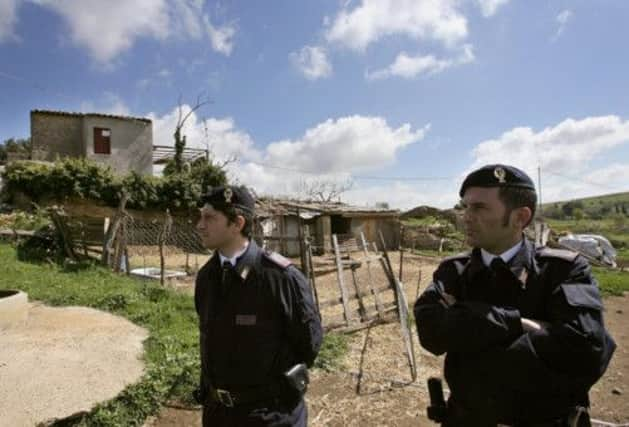Italy: Mafia escapes to the country


Italian mobs now control agricultural activity worth €14 billion (about £11.9bn), a record leap of 12 per cent on two years ago, said the report released by farming lobby Coldiretti and research firm Eurispes.
More often depicted as sharp suited urban types rather than tractor drivers in dungarees and straw hats, Italy’s godfathers have discovered that farming is a recession-proof business worth investing in.
Advertisement
Hide AdAdvertisement
Hide Ad“Farming and the food business has become a favoured destination for organised criminal investment because it is considered safer in a period of financial instability,” stated the report, which noted that almost a quarter of Mafia properties confiscated by police were farmland.
Coldiretti also quoted police statistics suggesting that 15 per cent of all farming in Italy was linked to criminal activity.
“Mafia organisations are aware that even if farming doesn’t bring in the quickest, most consistent earnings, food is a primary need that no-one can do without,” the report said.
The trend takes the Mafia back to its roots in Sicily when it extorted money from landowners, although Sicily’s Cosa Nosa has arguably always kept its ties to the land. Jailed Godfather Bernardo Provenzano – who was nicknamed The Tractor because “he mowed people down”, according to one informer – hid out on a farm before his capture.
The Mafia is also involved in rustling animals, stealing farm equipment and, the report said, defrauding the European Union of agricultural subsidies.
Increasingly, modern clans are taking over the entire business of growing, transporting and putting food on the table of Italians, from organising cheap migrant fruit and vegetable pickers to organising a nationwide trucking network.
Fruit and vegetable trucks controlled by the Casalesi clan – part of the Neapolitan Camorra Mafia – have been used to smuggle drugs and guns.
Rounding off their involvement in the food chain, the clans have allegedly been involved in running huge wholesale markets in Fondi, south of Rome, and in Milan, while taking over about 5,000 cafés and restaurants up and down the country.
Advertisement
Hide AdAdvertisement
Hide AdIn Naples, mobsters have even taken to setting up illegal bakeries which burn wood recycled from old coffins in their ovens.
Stefano Masini, the author of the report, said the global appeal of Italian cuisine had caught the eye of the Mafia.
He said: “These aren’t old-fashioned mobsters with shotguns but modern, Mafia-linked firms who see the value of the Made In Italy brand. What I find most alarming is how they are also importing foreign food and reselling it as Italian.”
Proving it has no real interest in protecting Italy’s gastronomic reputation, the Naples Camorra has long dumped toxic waste in fields outside the city, poisoning 170,000 acres, said Mr Masini.
The business, which is worth €3.9bn a year to the Mafia, the report said, has been linked to rising local cancer rates and increased dioxin levels in local mozzarella in an area once noted for its bountiful harvests.